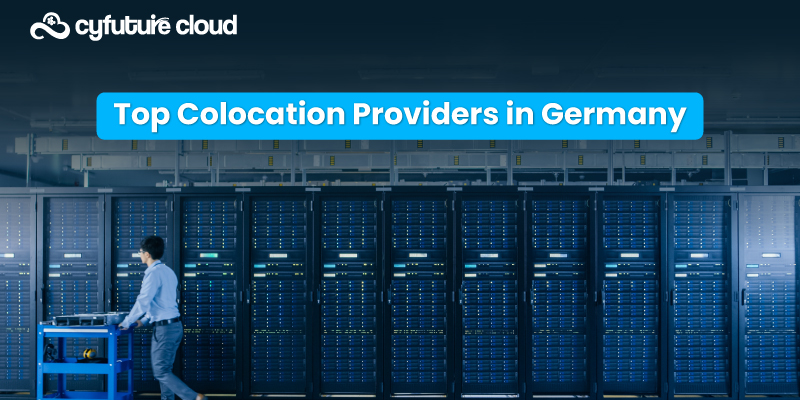Get 69% Off on Cloud Hosting : Claim Your Offer Now!
- Products
-
Compute
Compute
- Predefined TemplatesChoose from a library of predefined templates to deploy virtual machines!
- Custom TemplatesUse Cyfuture Cloud custom templates to create new VMs in a cloud computing environment
- Spot Machines/ Machines on Flex ModelAffordable compute instances suitable for batch jobs and fault-tolerant workloads.
- Shielded ComputingProtect enterprise workloads from threats like remote attacks, privilege escalation, and malicious insiders with Shielded Computing
- GPU CloudGet access to graphics processing units (GPUs) through a Cyfuture cloud infrastructure
- vAppsHost applications and services, or create a test or development environment with Cyfuture Cloud vApps, powered by VMware
- Serverless ComputingNo need to worry about provisioning or managing servers, switch to Serverless Computing with Cyfuture Cloud
- HPCHigh-Performance Computing
- BaremetalBare metal refers to a type of cloud computing service that provides access to dedicated physical servers, rather than virtualized servers.
-
Storage
Storage
- Standard StorageGet access to low-latency access to data and a high level of reliability with Cyfuture Cloud standard storage service
- Nearline StorageStore data at a lower cost without compromising on the level of availability with Nearline
- Coldline StorageStore infrequently used data at low cost with Cyfuture Cloud coldline storage
- Archival StorageStore data in a long-term, durable manner with Cyfuture Cloud archival storage service
-
Database
Database
- MS SQLStore and manage a wide range of applications with Cyfuture Cloud MS SQL
- MariaDBStore and manage data with the cloud with enhanced speed and reliability
- MongoDBNow, store and manage large amounts of data in the cloud with Cyfuture Cloud MongoDB
- Redis CacheStore and retrieve large amounts of data quickly with Cyfuture Cloud Redis Cache
-
Automation
Automation
-
Containers
Containers
- KubernetesNow deploy and manage your applications more efficiently and effectively with the Cyfuture Cloud Kubernetes service
- MicroservicesDesign a cloud application that is multilingual, easily scalable, easy to maintain and deploy, highly available, and minimizes failures using Cyfuture Cloud microservices
-
Operations
Operations
- Real-time Monitoring & Logging ServicesMonitor & track the performance of your applications with real-time monitoring & logging services offered by Cyfuture Cloud
- Infra-maintenance & OptimizationEnsure that your organization is functioning properly with Cyfuture Cloud
- Application Performance ServiceOptimize the performance of your applications over cloud with us
- Database Performance ServiceOptimize the performance of databases over the cloud with us
- Security Managed ServiceProtect your systems and data from security threats with us!
- Back-up As a ServiceStore and manage backups of data in the cloud with Cyfuture Cloud Backup as a Service
- Data Back-up & RestoreStore and manage backups of your data in the cloud with us
- Remote Back-upStore and manage backups in the cloud with remote backup service with Cyfuture Cloud
- Disaster RecoveryStore copies of your data and applications in the cloud and use them to recover in the event of a disaster with the disaster recovery service offered by us
-
Networking
Networking
- Load BalancerEnsure that applications deployed across cloud environments are available, secure, and responsive with an easy, modern approach to load balancing
- Virtual Data CenterNo need to build and maintain a physical data center. It’s time for the virtual data center
- Private LinkPrivate Link is a service offered by Cyfuture Cloud that enables businesses to securely connect their on-premises network to Cyfuture Cloud's network over a private network connection
- Private CircuitGain a high level of security and privacy with private circuits
- VPN GatewaySecurely connect your on-premises network to our network over the internet with VPN Gateway
- CDNGet high availability and performance by distributing the service spatially relative to end users with CDN
-
Media
-
Analytics
Analytics
-
Security
Security
-
Network Firewall
- DNATTranslate destination IP address when connecting from public IP address to a private IP address with DNAT
- SNATWith SNAT, allow traffic from a private network to go to the internet
- WAFProtect your applications from any malicious activity with Cyfuture Cloud WAF service
- DDoSSave your organization from DoSS attacks with Cyfuture Cloud
- IPS/ IDSMonitor and prevent your cloud-based network & infrastructure with IPS/ IDS service by Cyfuture Cloud
- Anti-Virus & Anti-MalwareProtect your cloud-based network & infrastructure with antivirus and antimalware services by Cyfuture Cloud
- Threat EmulationTest the effectiveness of cloud security system with Cyfuture Cloud threat emulation service
- SIEM & SOARMonitor and respond to security threats with SIEM & SOAR services offered by Cyfuture Cloud
- Multi-Factor AuthenticationNow provide an additional layer of security to prevent unauthorized users from accessing your cloud account, even when the password has been stolen!
- SSLSecure data transmission over web browsers with SSL service offered by Cyfuture Cloud
- Threat Detection/ Zero DayThreat detection and zero-day protection are security features that are offered by Cyfuture Cloud as a part of its security offerings
- Vulnerability AssesmentIdentify and analyze vulnerabilities and weaknesses with the Vulnerability Assessment service offered by Cyfuture Cloud
- Penetration TestingIdentify and analyze vulnerabilities and weaknesses with the Penetration Testing service offered by Cyfuture Cloud
- Cloud Key ManagementSecure storage, management, and use of cryptographic keys within a cloud environment with Cloud Key Management
- Cloud Security Posture Management serviceWith Cyfuture Cloud, you get continuous cloud security improvements and adaptations to reduce the chances of successful attacks
- Managed HSMProtect sensitive data and meet regulatory requirements for secure data storage and processing.
- Zero TrustEnsure complete security of network connections and devices over the cloud with Zero Trust Service
- IdentityManage and control access to their network resources and applications for your business with Identity service by Cyfuture Cloud
-
-
Compute
- Solutions
-
Solutions
Solutions
-
 Cloud
Hosting
Cloud
Hosting
-
 VPS
Hosting
VPS
Hosting
-
GPU Cloud
-
 Dedicated
Server
Dedicated
Server
-
 Server
Colocation
Server
Colocation
-
 Backup as a Service
Backup as a Service
-
 CDN
Network
CDN
Network
-
 Window
Cloud Hosting
Window
Cloud Hosting
-
 Linux
Cloud Hosting
Linux
Cloud Hosting
-
Managed Cloud Service
-
Storage as a Service
-
 VMware
Public Cloud
VMware
Public Cloud
-
 Multi-Cloud
Hosting
Multi-Cloud
Hosting
-
 Cloud
Server Hosting
Cloud
Server Hosting
-
 Bare
Metal Server
Bare
Metal Server
-
 Virtual
Machine
Virtual
Machine
-
 Magento
Hosting
Magento
Hosting
-
Remote Backup
-
 DevOps
DevOps
-
 Kubernetes
Kubernetes
-
 Cloud
Storage
Cloud
Storage
-
NVMe Hosting
-
 DR
as s Service
DR
as s Service
-
-
Solutions
- Marketplace
- Pricing
- Resources
- Resources
-
By Product
Use Cases
-
By Industry
- Company
-
Company
Company
-
Company
What are the advantages and challenges of adopting a DevOps culture in a company?
Table of Contents
Are you looking to streamline your software development and delivery processes? Want to improve collaboration between your development and operations teams? Then DevOps might be the answer for you!
This blog will delve into the numerous benefits and challenges of implementing a DevOps culture within an organization.
The advantages of DevOps are clear, from faster delivery times to increased reliability and improved quality assurance. However, we’ll also take a closer look at the hurdles you may face, such as resistance to change and finding the right balance between speed and stability.
Join us to explore.
What is DevOps?
DevOps brings together development (Dev) and operations (Ops) teams to create a seamless software development and delivery process. It is a cultural and practical approach that speeds up the creation of software products and services while making maintenance of existing deployments easier.
Integrating Dev, Ops, and other stakeholders within a company fosters collaboration and communication, leading to more efficient iterations through implementing best practices, automation, and new tools. By doing so, DevOps helps organizations achieve faster and more controlled software delivery.
DevOps aims to automate processes, eliminate silos between development and operations teams, and promote collaboration and communication throughout the entire software development lifecycle. DevOps is to create a high-performing and agile IT organization that can quickly respond to changing market and customer requirements.
The first steps in implementing DevOps often involve:
- Adopting Continuous Integration and Continuous Delivery (CI/CD).
- Implementing real-time monitoring systems.
- Establishing incident response processes.
- Utilizing collaboration tools.
How does DevOps drive success for companies?
DevOps can benefit a business in several ways:
- Faster software delivery and deployment: DevOps practices promote continuous integration and delivery, allowing teams to quickly and safely release new software updates.
- Improved reliability and stability: DevOps practices promote automation of testing and deployment, reducing the likelihood of mistakes and minimizing downtime.
- Better collaboration and communication: DevOps promotes close cooperation between development and operations teams, leading to better alignment and understanding of each other’s needs and goals.
- Increased agility: DevOps enables organizations to quickly respond to market and customer requirements changes, making launching new products and services easier.
- Improved security: DevOps practices emphasize security and compliance as part of the software development process, reducing the risk of security breaches and data loss.
- Increased efficiency and cost savings: DevOps can lead to improved resource utilization, reduced manual errors, and reduced lead time to market, resulting in cost savings.
- Improved customer satisfaction: DevOps practices can lead to higher quality software, faster delivery times, and better reliability, resulting in improved customer satisfaction.
- Increased innovation: DevOps encourages experimentation and rapid iteration, leading to more innovation and faster time-to-market for new ideas.
- Better monitoring and feedback: DevOps practices emphasize continuous monitoring and feedback, allowing teams to quickly identify and resolve issues before they become bigger problems.
- Improved work environment: DevOps promotes a culture of collaboration, continuous improvement, and experimentation, leading to a more enjoyable and fulfilling work environment for employees.
- Competitive advantage: DevOps enables organizations to respond quickly to market changes and customer needs, giving them a competitive advantage over slower-moving organizations.
- Better use of resources: DevOps practices encourage automation and elimination of manual processes, freeing up valuable resources for other tasks and initiatives.
What are the obstacles faced during the transition to DevOps, and how to overcome them?
|
Challenges of DevOps |
Solution to Overcome them |
|
Reluctance to change |
Encourage open communication, provide training and support, and involve all stakeholders in the transition to DevOps |
|
Integration of disparate tools and technologies |
Choose tools that are compatible with each other and promote integration, and standardize processes and practices to ensure consistency across teams |
|
Lack of clear ownership and accountability |
Define clear roles and responsibilities, and encourage collaboration and communication between teams |
|
Striving for a balance between speed and stability. |
Automate testing and deployment processes to ensure stability, and prioritize security and compliance to minimize risks |
|
Ensuring cultural alignment and commitment |
Foster a culture of continuous improvement, experimentation, and collaboration, and provide training and support to help teams understand and embrace the DevOps philosophy |
|
Lack of resources |
Prioritize DevOps initiatives and allocate resources accordingly, and consider outsourcing certain tasks or processes to free up internal resources |
|
Complexity of legacy systems |
Modernize legacy systems as much as possible, automate manual processes to simplify workflows, and consider implementing microservices architectures to make systems more flexible and scalable |
|
Difficulty in measuring success |
Establish clear metrics for success and regularly track and analyze performance data, and engage with stakeholders to understand their needs and goals |
|
Difficulty in securing and managing sensitive data |
Encrypt sensitive data and implement strong security measures, and conduct regular security audits and assessments to minimize risks |
|
Difficulty in ensuring regulatory compliance |
Stay informed about industry regulations and standards, and incorporate compliance requirements into DevOps processes and practices |
Future of DevOps
The future of DevOps is expected to be shaped by several emerging trends and technologies, including:
Artificial Intelligence (AI) and Machine Learning (ML): AI and ML are expected to play a significant role in automating and optimizing DevOps processes, enabling teams to work faster and more efficiently.
Microservices and containers: These are expected to become increasingly popular as these technologies make building and deploying complex applications easier.
DevOps as a Service (DaaS): More and more companies are expected to adopt DevOps as a Service, where DevOps processes are managed and executed by third-party vendors.
Cloud-Native: The adoption of cloud-native architectures and technologies, such as cloud-based platforms, is expected to continue to grow as organizations look to take advantage of the scalability, security, and cost-effectiveness of the cloud.
DevSecOps: Security is becoming an increasingly important part of DevOps, and integrating security practices and tools into DevOps workflows is expected to become the norm.
Wrapping Up!
To summarize, DevOps offers many advantages but also presents challenges. Businesses must weigh the benefits and drawbacks before deciding to implement them. DevOps can be a valuable asset for companies seeking to enhance their software development if approached with commitment and hard work.
Recent Post

Stay Ahead of the Curve.
Join the Cloud Movement, today!
© Cyfuture, All rights reserved.
Send this to a friend

 Pricing
Calculator
Pricing
Calculator
 Power
Power
 Utilities
Utilities VMware
Private Cloud
VMware
Private Cloud VMware
on AWS
VMware
on AWS VMware
on Azure
VMware
on Azure Service
Level Agreement
Service
Level Agreement 


















